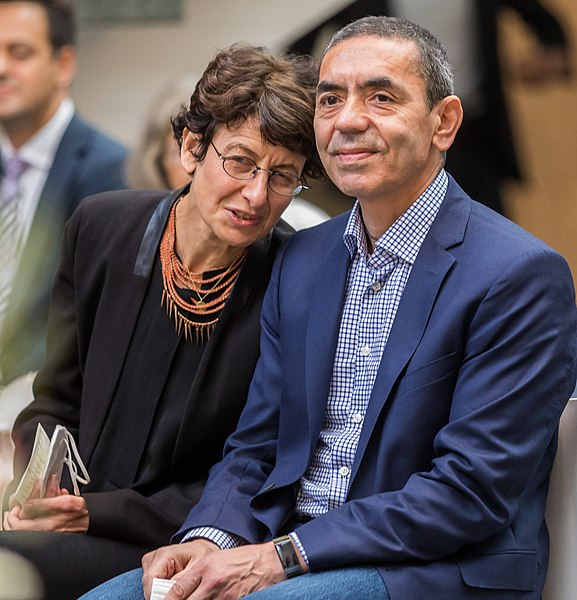The world may be closer to cure for cancer than possibly thought, with BioNTech claiming vaccines could be available before 2030.
Professor Ozlems Tureci, who founded the German pharmaceutical company BioNTech with her husband Professor Ugur Sahin, told BBC in an interview that they feel a cure for cancer or to changing cancer patients' lives is in their grasp. Sahin believes cancer vaccines could be widely available before 2030.
The husband-wife duo founded BioNTech in 2008 to initially develop and produce treatments for individualized cancer immunotherapy via mRNA technology. They used this technology to create one of the first and most effective Covid-19 vaccines when the coronavirus pandemic hit in 2020.

mRNA Vaccine
Tureci said the mRNA technology could be repurposed to prime the immune system to attack cancer cells instead of invading coronaviruses. She explained that the mRNA Covid vaccine works by carrying the genetic instructions for harmless spike proteins on the coronavirus into the body. "The instructions are taken up by the cells which churn out the spike protein. These proteins, also known as antigens, are used as wanted posters which tells the immune system's antibodies and other defences what to search for an attack."
The BioNTech's chief medical officer outlined that the same approach can be taken to prime the immune system to look for and destroy cancer cells. "Rather than carrying code that identifies viruses, the vaccine contains genetic instructions for cancer antigens (proteins that stud the surfaces of tumour cells)."
Tureci highlighted that BioNTech learned how to manufacture mRNA vaccines faster during the pandemic. As such, the pharmaceutical giant now has a better understanding of how people's immune systems responded to mRNA.
Challenges and Doubts
Despite BioNTech's progress and achievements, Tureci remains cautious about the work. "As scientists we are always hesitant to say we will have a cure for cancer. We have a number of breakthroughs and we will continue to work on them," she said.

Dr Sam Godfrey, research information lead at Cancer Research U.K., believes the development of several Covid-19 vaccines in record time showed the possibilities of mRNA vaccine technology, which could one day become an effective treatment to help beat cancer. "Just as science was our route out of the pandemic, science is our route to beating cancer. We are optimistic that, in the future, we will see mRNA technology and other exciting vaccine approaches giving doctors more treatment options to help beat cancer."
Godfrey added that using vaccines to treat cancer is an exciting emerging field. "We have already partnered with Vaccitech to trial one of the world's first therapeutic vaccines for lung cancer, and we are finding cutting-edge research learning how virus and vaccine technology might activate the immune system against cancer."








